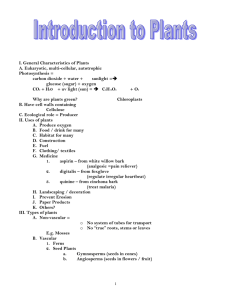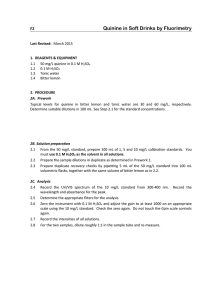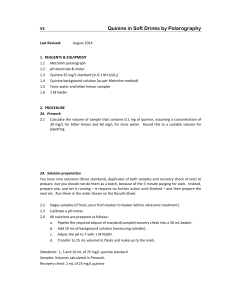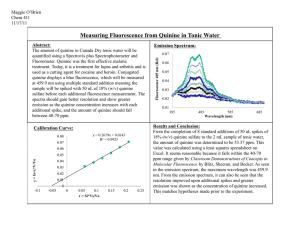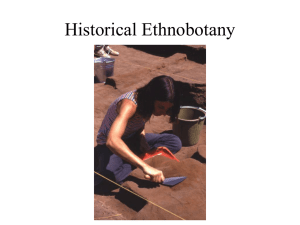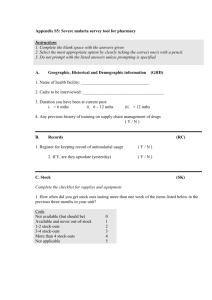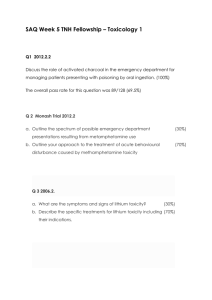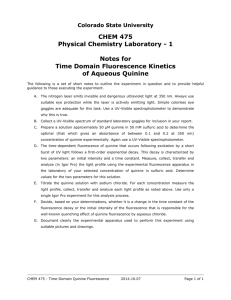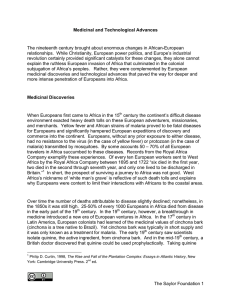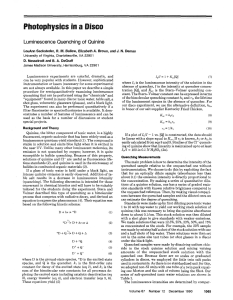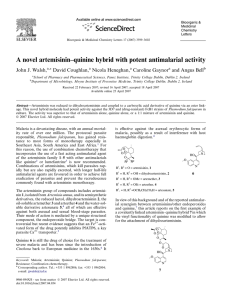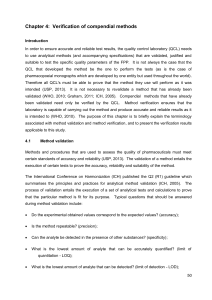Outline & Study Guide for Unit IV. Amines
advertisement
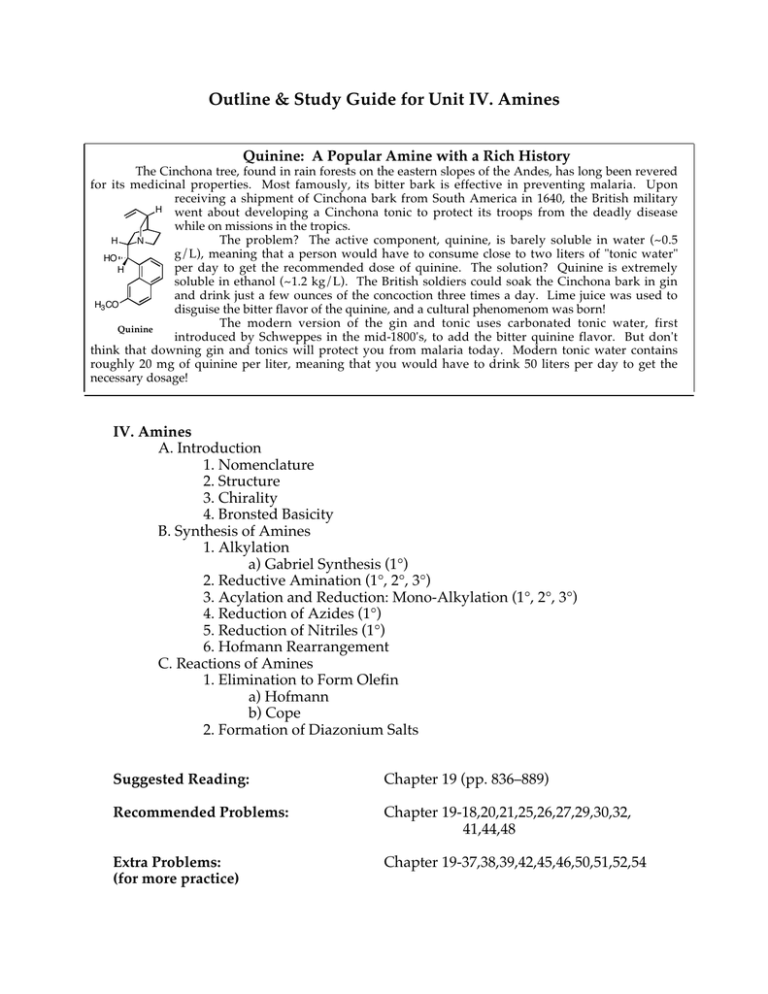
Outline & Study Guide for Unit IV. Amines Quinine: A Popular Amine with a Rich History The Cinchona tree, found in rain forests on the eastern slopes of the Andes, has long been revered for its medicinal properties. Most famously, its bitter bark is effective in preventing malaria. Upon receiving a shipment of Cinchona bark from South America in 1640, the British military H went about developing a Cinchona tonic to protect its troops from the deadly disease while on missions in the tropics. The problem? The active component, quinine, is barely soluble in water (~0.5 H N g/L), meaning that a person would have to consume close to two liters of "tonic water" HO per day to get the recommended dose of quinine. The solution? Quinine is extremely H soluble in ethanol (~1.2 kg/L). The British soldiers could soak the Cinchona bark in gin and drink just a few ounces of the concoction three times a day. Lime juice was used to H3 CO disguise the bitter flavor of the quinine, and a cultural phenomenom was born! The modern version of the gin and tonic uses carbonated tonic water, first Quinine introduced by Schweppes in the mid-1800's, to add the bitter quinine flavor. But don't think that downing gin and tonics will protect you from malaria today. Modern tonic water contains roughly 20 mg of quinine per liter, meaning that you would have to drink 50 liters per day to get the necessary dosage! IV. Amines A. Introduction 1. Nomenclature 2. Structure 3. Chirality 4. Bronsted Basicity B. Synthesis of Amines 1. Alkylation a) Gabriel Synthesis (1°) 2. Reductive Amination (1°, 2°, 3°) 3. Acylation and Reduction: Mono-Alkylation (1°, 2°, 3°) 4. Reduction of Azides (1°) 5. Reduction of Nitriles (1°) 6. Hofmann Rearrangement C. Reactions of Amines 1. Elimination to Form Olefin a) Hofmann b) Cope 2. Formation of Diazonium Salts Suggested Reading: Chapter 19 (pp. 836–889) Recommended Problems: Chapter 19-18,20,21,25,26,27,29,30,32, 41,44,48 Extra Problems: (for more practice) Chapter 19-37,38,39,42,45,46,50,51,52,54
